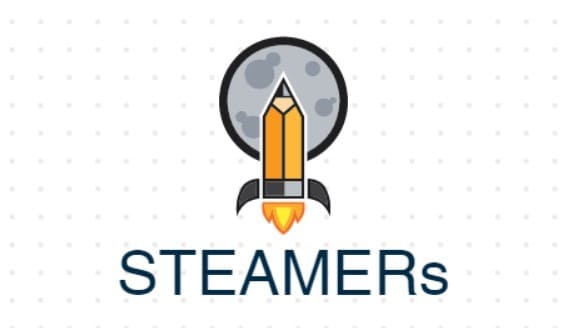Erasmus
Steamers
Finish: - October 2023
Sub-Programme: STEAM and Educational Robotics in Pre-Primary Education

The European Commission support for the production of this publication does not constitute an endorsement of the contents which reflects the views only of the authors, and the Commission cannot be held responsible for any use which may be made of the information contained therein.
Description
As more aspects of daily life are tied to technology, the need to improve and expand STEAM education across the curriculum will only get more pressing. Without enough STEAM educators, students can’t get access to the types of STEAM opportunities that are likely to encourage long-term interest and passion in these fields and beyond. As more aspects of daily life are tied to technology-based sySTEAMs, the need to improve and expand STEAM education is considered key to maintain a competitive edge in the 21st century. With more emphasis on STEAM education, a meaningful STEAM curriculum is often introduced to the youngest students, beginning at the preschool level. Research confirms that exposing students to STEAM experiences at a young age encourages critical thinking skills, increases science literacy, and fosters creative problem solving. These experiences can help establish a long-term passion for STEAM subjects, as well as general academic success across all disciplines.
The project idea derived following a small-scale needs assessment was carried out in the form of a survey (link to Google form) where a number of teachers in primary education participated. The study investigated the needs of the target groups with regards to skills development and innovative solutions in their field. The analysis revealed the challenges teachers are facing in introducing STEAM or Robotics in their lessons due to the lack of knowledge and technological fear of the new technologies in education. In addition, respondents revealed their interest in being introduced to STEAM teaching and how they can apply educational robotics in their lessons, obtain expertise on the topic and enhance their educational methodologies since they recognised the importance of lifelong learning and constant professional development.
In this framework, the project aims at the Development of Knowledge, Skills and Key Competences of STEAM and Educational Robotics of Teachers in PrePrimary Education (STEAMERs). Through the project teachers will develop the skills and competences required in carrying out STEM-related tasks which include cognitive, manipulative, technological skills and collaboration and communication skills.
Objectives
Our project aims to have the highest possible level of engagement as this is the whole concept of STEAM learning. Once the current knowledge and skills of the target group (preprimary teachers) are identified in each partner country, the development and training of the target group will then proceed. This will be done by various tasks associated with the project which are divided among partners as followed:
R1: The STEAMERs Compendium: A complete report which will identify the training needs of preprimary school teachers in terms of skills and key competences development to effectively carry out STEAM education with their preschoolers and also identify current trends in each partner country:
R2: The methodological Training Course: This will include Curriculum for pre-primary school teachers that will contain practical guidance for developing the skills, knowledge and key competences identified on R1 by using various activities
R3: An e-Learning platform promoting online learning actions and resources and virtual cooperation, communication and experimentation, combining virtual and blended learning opportunities for the target group. It will include the training course online, technical design of the course, self-assessment, implementation of testing and finalization


